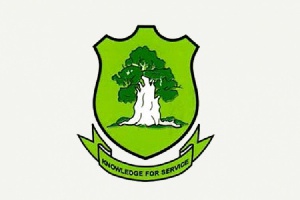The University for Development Studies (UDS) has organized a two-day training workshop for its affiliate Colleges of Education on the introduction of the new four-year Bachelor of Education (B.Ed) Curriculum into their course programmes.
The workshop, held at Tamale, was to train the college tutors as well as lecturers of the Faculty of Education, UDS, with innovative skills and knowledge to strengthen and improve on the teaching and training, to help produce quality teachers in the country.
The UDS affiliated colleges include Dambai College of Education, Gambaga College of Education, Tumu College of Education, McCoy College of Education, St. Vincent College of Education and A1 Faruq College of Education.
The new B.Ed curriculum is also part of the reforms introduced by government to improve on teaching and learning in the educational sector.
Professor Anthony Kodjo Donkor, Director for Colleges of Education, Affiliation, at the UDS, addressing participants at the workshop, said the training formed part of the reform of the policy for Initial Teacher Education, which was approved by Cabinet in 2018, as part of efforts to ensure improvement in the quality of new teacher trainees.
He said some key features in the reform included Equity and inclusivity to enhance access to education for every child, Upgrading of a three year diploma certificate into a four-year degree in Basic Education, Assessment of students against the National Teachers Standards, among others.
He added that, the workshop would help prepare the tutors towards the new B.Ed curriculum for the First year, Semester One Courses of the 2019/2020 Academic year, which is expected to take off by October 7, 2019.
Professor Seidu Al-hassan, the Pro-Vice-Chancellor of the UDS, encouraged the participants to actively participate in the training and contribute positively to make the new course rich in content and practice.
This, he noted, would extensively imbibe into the new student teachers, the type of educational training that would equip them with the innovative skills to have positive influence on the children they would teach.
Mr Peter Jayom Chammic, the Transforming Teacher Education and Learning (T-TEL), Team Leader for the Northern Zone, in a presentation said the new B.Ed curriculum had made provisions for gender equity and inclusion to ensure equal access and improvement in the learning outcomes in education for all children.
He highlighted some features of the B.Ed curriculum which included Progress in student teacher learning and skill acquisition across the four-year period, mentored placement, integration of subject specific content and pedagogy and assessment of trainees.
General News of Friday, 20 September 2019
Source: ghananewsagency.org

















